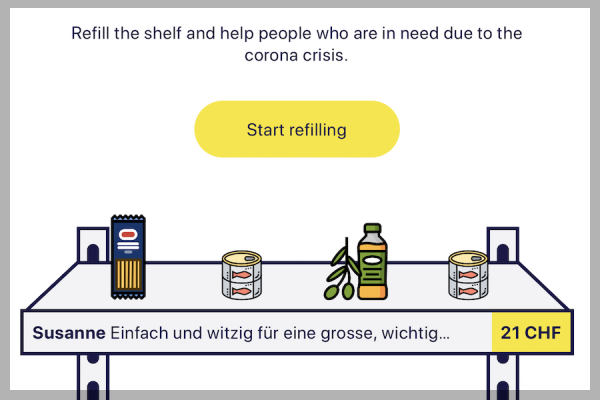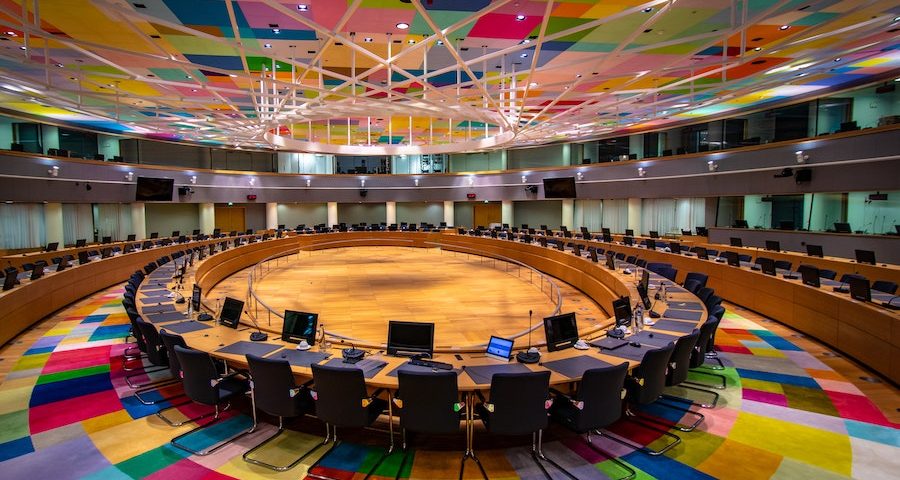
Your Voice: The story behind Refill the Shelf
November 13, 2020
Interview with Anne Connelly: Using Bitcoin and Blockchain for fundraising
January 13, 2021In the last of this year’s series – a View from Brussels – our public affairs columnist, Patrick Gibbels, summarises the state of play on the key EU policy issues likely to influence fundraising.
2020 is coming to an end, and it is safe to say that this has been an eventful year. The global pandemic meant drastic changes, both in the day to day business of fundraisers and nonprofits, and in terms of the EU policy agenda. Whilst the European Commission had laid out a carefully planned Annual Work Programme, many elements were delayed or bumped off the agenda entirely, due to more pressing COVID-related matters. So, where are we now and what’s in store for 2021?

Patrick Gibbels, director of Gibbels Public Affairs
At the beginning of the year, the European Commission announced proposals on non-financial reporting; a European data strategy; a digital services act; measures to fight tax evasion; e-privacy; the reform of EU VAT rates; and of course, the rules on anti-money laundering and terrorism financing. Whilst some of these files saw some movement this year, none of them was finalised.
In February of this year, we reported on the EU’s plans to reform rules on e-privacy. These rules give rights to individuals regarding electronic marketing methods such as direct marketing and the use of cookies, which also apply to fundraising, marketing, and campaigning. Since the new ePrivacy proposal is a Regulation under EU law, rather than a Directive, it means that it will apply across the EU, without much room for adjustments at national level. This reform could have significant implications for nonprofits, as it is part of a move away from opting out to explicit consent.
Whilst this file was expected to be finalised this year, it has stalled in the EU Council. In July 2020, the German Presidency published its first discussion paper. National delegations recently rejected a revised version of the paper and on 23 November 2020 the German Presidency presented its progress report, stating it would ‘closely work with the forthcoming Portuguese Presidency to facilitate further discussions and to ensure smooth progress on the file’. In other words, the end is not yet in sight and we have no clarity about the new rules in the meantime.
A similar evolution could be seen in the well-known dossier on anti-money laundering and terrorism financing. The NPO coalition, EFC, Dafne, EFA, Civil Society Europe and others, have prepared a joint response to the public consultation on the matter. And whilst the European Commission has indicated this as a priority pending proposal, no regulatory initiatives have been planned until Q1 of next year, at the earliest.
Due to the lockdowns and other crisis measures, many very important means of generating funds have been made impossible. Fundraising events and face-to-face activity in many markets are impossible due to social distancing restrictions, and whilst many organisations have been creative in coming up with alternative ways to raise money, COVID-19 has caused considerable losses. The Belgian Red Cross had to cancel its annual event where it sells stickers at cross-roads and other busy places. But they distributed 770,000 stickers in letterboxes across Belgium and called on people to donate online.
But even this type of fundraising may be in jeopardy due to increasing calls by a number of Member States proposing that residents should not receive unaddressed mailings unless they have opted in. Door drops and the opt-out system are a part of the EU’s 2005 Unfair Commercial Practices Directive. If the EU were to adopt an opt-in approach, nonprofits would no longer be able to send unaddressed mailings to any households, unless they proactively permit them to do so. As it is unlikely that many people will do so, such a proposal could further inhibit fundraisers in an already very challenging time.
On 1 January, Portugal will take over the Presidency of the EU Council. Whoever holds the Presidency has a deciding impact on the political agenda of the EU for those 6 months. What we know so far through an early version of the Presidency Priorities is that the Portuguese Presidency will focus on a social and resilient Europe, whilst focusing on digital policies (such as e-privacy and data laws). And the new EFA survey findings show just how important digital channels have become for nonprofits this year.
Once the Presidency starts its term on 1 January, we will know more. We’ll be following up this retrospective look with a forward-looking policy perspective of 2021 in the next issue of Fundraising Europe, in January of next year.
Image credit: Photo by Frederic Köberl on Unsplash




